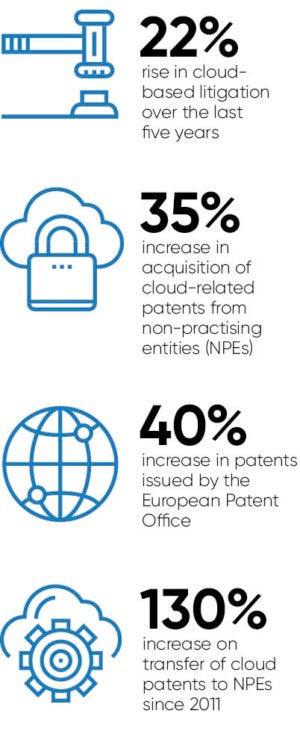 Digital technology in the cloud is profoundly changing the way we live and the way businesses and organisations operate, offering huge benefits for users in flexibility, reliability and innovation. It allows them to harness the power of big data to reach new audiences and customers.
Digital technology in the cloud is profoundly changing the way we live and the way businesses and organisations operate, offering huge benefits for users in flexibility, reliability and innovation. It allows them to harness the power of big data to reach new audiences and customers.
To some degree, every company, whatever its sector, is now a digital business. It is estimated that the cloud will generate more than $1 trillion in IT spending by 2020, according to research firm Gartner.
One of the features that makes the cloud so attractive is that it relies on shared environments and an ethos of collaboration that harks back to the early days of the world wide web.
However, moving to the cloud also brings possible hazards and, although most users are aware of the importance of cyber security and privacy, there is less understanding about the risks to intellectual property (IP).
Cloud users rely heavily on IP, whether they are retailers or technology pioneers in the internet of things, but many do not have an IP strategy and may be unaware of their vulnerability to litigation.
Lawsuits between technology companies are a fact of life as we have seen in the legal battles between mobile phone companies over many decades and just recently between rival driverless car developers.
But there is another threat to IP that puts many cloud users at risk and that is from so-called non-practising entities (NPEs), commonly known as “patent trolls”.
NPEs do not make or sell products or services, but hold a portfolio of technology patents and sue others for alleged patent breaches.
The risk for companies on the receiving end of litigation is that, if they refuse to pay royalties or a cash settlement, they could be sucked into years of expensive legal action.
NPEs are getting more aggressive, which can be intimidating for cloud users who do not have expertise in this area. A recent study by Boston Consulting Group found a 22 per cent rise in cloud-based litigation over the past five years.
There is a real concern that abusive activities by IP trolls will not only damage individual cloud users, but will stifle the innovation of the cloud itself.
As the cloud grows in size and sophistication, patent trolls are growing bolder and posing a significant potential threat to the unwary
Microsoft’s Azure cloud computing service is among the world’s largest and has launched what analysts have praised as the industry’s most comprehensive protection programme against the threat of IP litigation.
Nicolas Schifano, senior director of cloud and IP strategy, says: “At Microsoft, we heard directly from our customers about concerns they have navigating IP risks in the cloud. We want to support businesses of all sizes as they take full advantage of the digital opportunities in the cloud and ward off unwarranted patent litigation so we can encourage an ecosystem where developers, entrepreneurs and enterprise can innovate with confidence.”
The Microsoft Azure IP Advantage programme forms a three-way defence against opportunistic patent litigators, offering protection to big corporates and small companies alike.
It offers Azure customers uncapped indemnification which will include any open source technology – so important to the development of the cloud – that powers Azure services.
Customers will have access to 10,000 Microsoft patents on which they can draw to defend themselves against lawsuits.
And Microsoft has pledged that if it transfers patents to a non-practising entity in the future, they cannot be used against its customers.
The launch of Azure IP Advantage has been welcomed by customers including carmaker Toyota, toy company Mattel and smart meter maker Itron.
As the cloud grows in size and sophistication, patent trolls are growing bolder and posing a significant potential threat to the unwary.
Mr Schifano concludes: “We can help Azure users deter legal attacks so they can focus their energy on growing their businesses and serving their customers rather than worrying about lawsuits.”
For more information please visit azure.microsoft.com/en-us/overview/azure-ip-advantage

